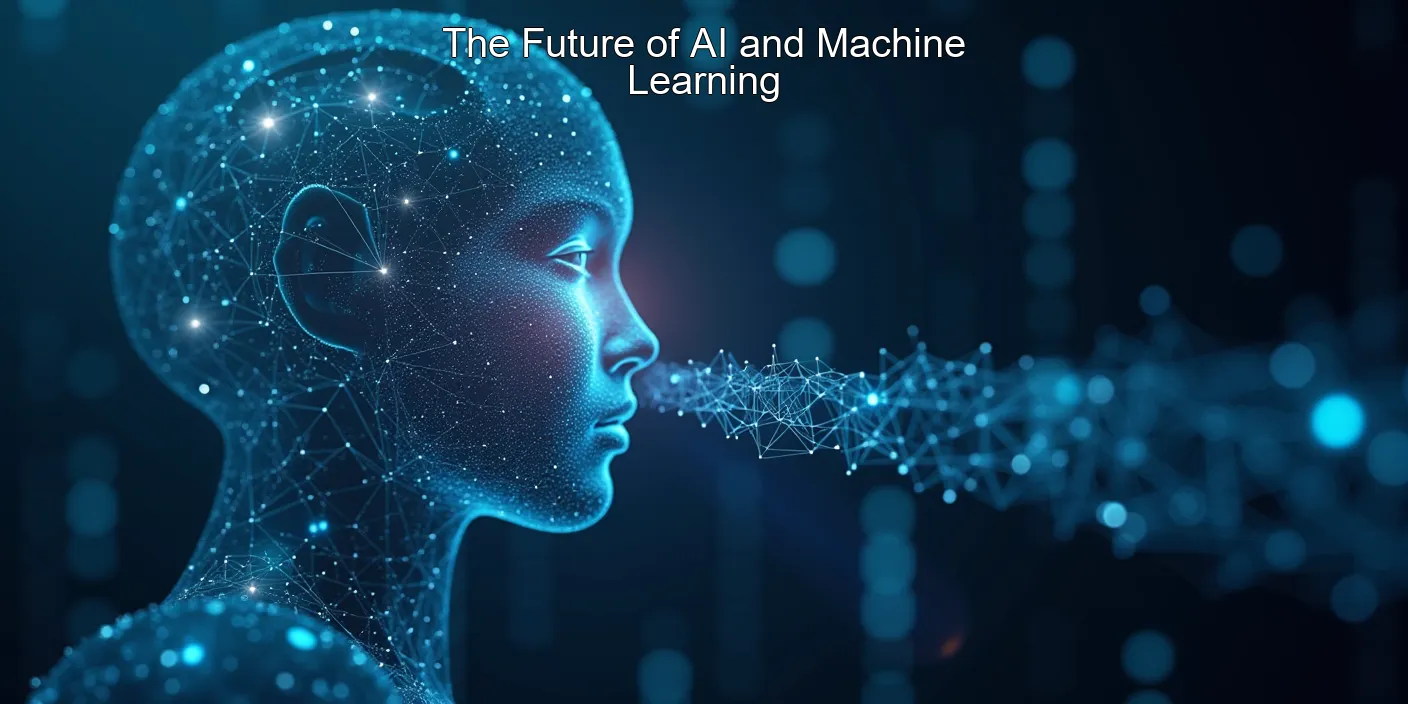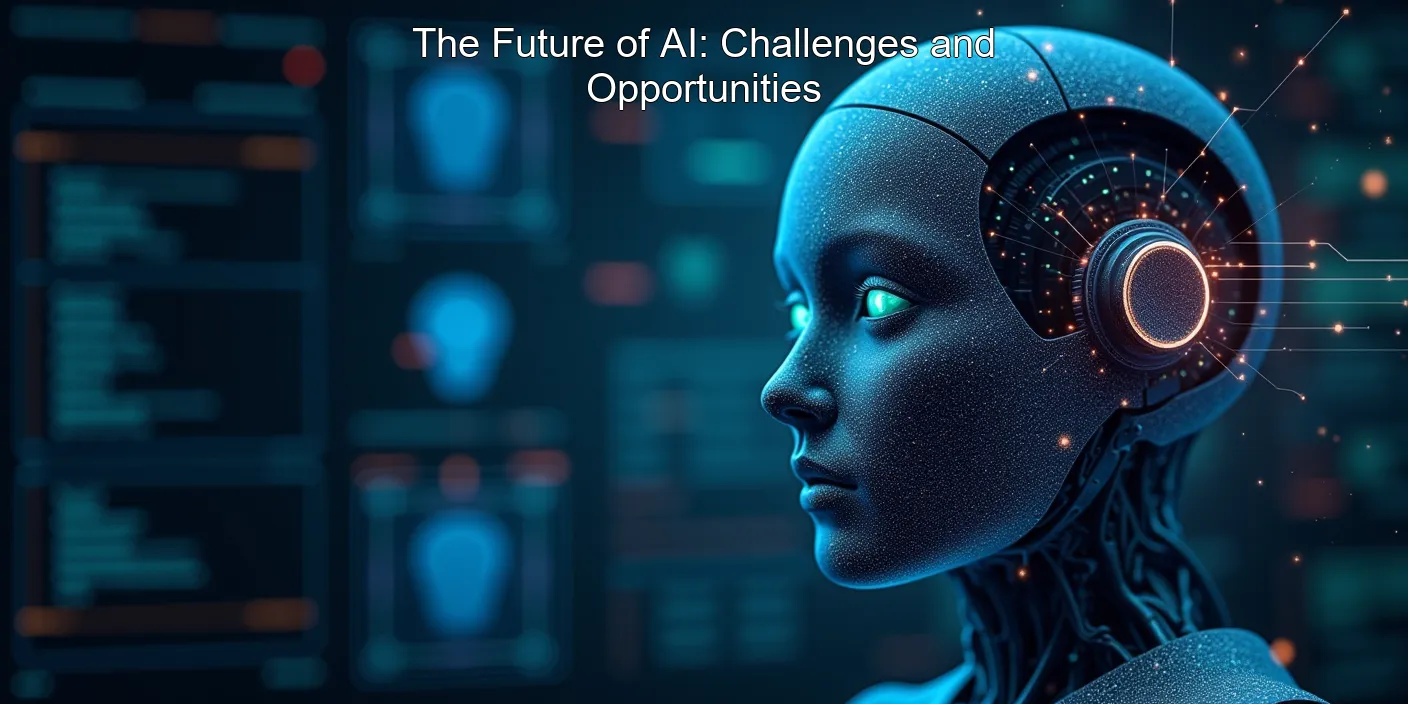Exploring the Cutting-Edge: AI and Machine Learning Breakthroughs
| Key Aspects | Impact |
|---|---|
| AI Applications | Healthcare, Finance, Transportation |
| ML Techniques | Deep Learning, Neural Networks, NLP |
| Market Growth | Expected to reach $190.61 billion by 2025 |
The world of artificial intelligence and machine learning is evolving at breakneck speed, revolutionizing industries and reshaping our daily lives. Let’s dive into the most exciting developments:

#AI, #MachineLearning, #Innovation
- Advanced natural language processing
- Computer vision breakthroughs
- Reinforcement learning advancements
- Explainable AI techniques
“AI is the new electricity. Just as electricity transformed almost everything 100 years ago, today I actually have a hard time thinking of an industry that I don’t think AI will transform in the next several years.” – Andrew Ng, AI expert and Stanford professor
FAQ: AI and Machine Learning Innovations
Q: How is AI impacting healthcare?
A: AI is revolutionizing healthcare through improved diagnostics, personalized treatment plans, and drug discovery acceleration.
Q: What are the latest developments in natural language processing?
A: Recent NLP advancements include more accurate language translation, sentiment analysis, and human-like text generation.
Q: How is machine learning enhancing cybersecurity?
A: ML algorithms are improving threat detection, predictive analysis, and automated incident response in cybersecurity.
5 Tips for Staying Informed on AI and ML Advancements
- Follow reputable AI research institutions and publications
- Attend AI and ML conferences and webinars
- Experiment with open-source AI tools and platforms
- Join online AI communities and forums
- Enroll in AI and ML online courses or bootcamps
According to a recent study by Gartner, AI implementation has grown by 270% over the past four years, with 37% of organizations now deploying AI in some form.
“AI Adoption Soars: 270% Growth & 37% Usage – Stay Informed!”
Ethical Considerations in AI Development

| Ethical Concern | Potential Solution |
|---|---|
| Bias in AI algorithms | Diverse training data, regular audits |
| Privacy issues | Data protection regulations, transparency |
| Job displacement | Reskilling programs, new job creation |
As AI and ML technologies advance, it’s crucial to address the ethical implications. Ethical AI practices are becoming increasingly important to ensure responsible development and deployment.
“Advancing AI: The Rising Need for Ethical Practices”
- Transparency in AI decision-making
- Fairness and non-discrimination in algorithms
- Accountability for AI-driven outcomes
- Protection of personal data and privacy
“The development of full artificial intelligence could spell the end of the human race. We need to be super careful with AI. It is potentially more dangerous than nukes.” – Stephen Hawking
FAQ: Ethical AI Development
Q: How can we ensure AI systems are unbiased?
A: Regular audits, diverse development teams, and careful data selection can help reduce bias in AI systems.
Q: What regulations exist for AI development?
A: Various countries are implementing AI regulations, such as the EU’s proposed AI Act, to ensure responsible AI development.
Q: How can individuals contribute to ethical AI practices?
A: Stay informed, advocate for responsible AI use, and support organizations promoting ethical AI development.
4 Steps to Promote Ethical AI Development
- Implement diverse and inclusive AI development teams
- Conduct regular ethical audits of AI systems
- Prioritize transparency in AI decision-making processes
- Engage in ongoing dialogue with stakeholders and the public
A study by Capgemini Research Institute found that 62% of consumers would place higher trust in a company whose AI interactions they perceived as ethical.
As we continue to explore the fascinating world of AI and machine learning, it’s essential to balance innovation with ethical considerations. From AI in Entertainment to AI in Everyday Life, these technologies are reshaping our world. Stay curious, stay informed, and be part of the conversation shaping the future of AI Innovations.
Breakthroughs in AI and Machine Learning: Exploring the Latest Advancements
Artificial intelligence and machine learning are rapidly evolving fields, pushing the boundaries of what’s possible in technology. In this article, we’ll dive into the most recent breakthroughs that are shaping the future of AI and ML. From groundbreaking algorithms to innovative applications, these advancements are set to revolutionize various industries and our daily lives.
Key Developments in AI and Machine Learning
| Area | Breakthrough | Impact |
|---|---|---|
| Natural Language Processing | GPT-3 and beyond | Enhanced language understanding and generation |
| Computer Vision | Advanced object recognition | Improved autonomous vehicles and surveillance |
| Reinforcement Learning | AlphaFold | Protein structure prediction for drug discovery |
These advancements are just the tip of the iceberg. Let’s explore some of the most significant breakthroughs in more detail:
- Transformer models revolutionizing NLP tasks
- Generative AI creating realistic images and videos
- Quantum machine learning algorithms for complex problem-solving
- Edge AI bringing intelligence to IoT devices
“Artificial intelligence is poised to be one of the most transformative technologies of our time, much like the steam engine or electricity in previous eras. Its impact will be felt across every sector, fundamentally altering the way we live and work.” – Sundar P
Frequently Asked Questions
Q: How are these AI breakthroughs impacting everyday life?
A: From smart home devices to personalized recommendations, AI is becoming increasingly integrated into our daily routines, enhancing convenience and efficiency.
Q: What industries are benefiting most from machine learning advancements?
A: Healthcare, finance, and manufacturing are seeing significant improvements in diagnostics, risk assessment, and process optimization through ML applications.
Q: Are there any ethical concerns with these AI advancements?
A: Yes, issues like data privacy, algorithmic bias, and job displacement are important ethical considerations as AI technology progresses.
Practical Applications of Recent AI Breakthroughs
- Implement natural language processing for customer service chatbots
- Utilize computer vision for quality control in manufacturing
- Apply reinforcement learning to optimize energy consumption in smart buildings
- Leverage generative AI for content creation and design
According to a recent study by PwC, AI could contribute up to $15.7 trillion to the global economy by 2030, highlighting the immense potential of these technological advancements.
The Future of AI and Machine Learning

As we look ahead, the future of AI and machine learning appears incredibly promising. Researchers and developers are constantly pushing the boundaries, exploring new frontiers in AI Innovations that could reshape our world.
“Transforming Tomorrow: The Expanding Horizons of AI Innovation”
| Emerging Technology | Potential Impact |
|---|---|
| Neuromorphic Computing | Brain-like processing for complex decision-making |
| Explainable AI | Increased transparency and trust in AI systems |
| Federated Learning | Enhanced privacy and data security in ML models |
These emerging technologies are set to drive the next wave of AI in Everyday Life, from smarter personal assistants to more efficient public services.
- AI-powered healthcare diagnostics and personalized treatment plans
- Autonomous vehicles and advanced traffic management systems
- AI-driven climate modeling and environmental protection strategies
- Personalized education powered by adaptive learning algorithms
“The development of full artificial intelligence could spell the end of the human race… It would take off on its own, and re-design itself at an ever-increasing rate.” – Stephen Hawking
Q: How will AI and ML impact job markets in the future?
A: While some jobs may be automated, AI is expected to create new roles and industries, requiring a shift in workforce skills and education.
Q: What are the biggest challenges facing AI and ML development?
A: Challenges include data quality and availability, computational power limitations, and the need for robust Ethical AI frameworks.
Q: How can individuals prepare for an AI-driven future?
A: Developing skills in data analysis, programming, and critical thinking will be crucial for thriving in an AI-dominated world.
Steps to Stay Informed About AI Advancements
- Follow reputable AI research institutions and publications
- Attend AI and ML conferences or webinars
- Experiment with open-source AI tools and platforms
- Engage in online AI communities and forums
A survey by Deloitte found that 76% of executives believe AI will substantially transform their companies within the next three years, underscoring the rapid pace of AI adoption and innovation.
As we continue to witness breakthroughs in AI and machine learning, it’s clear that these technologies will play an increasingly significant role in shaping our future. From enhancing AI in Entertainment to revolutionizing scientific research, the possibilities are endless. By staying informed and embracing these advancements, we can harness the power of AI to create a more efficient, innovative, and connected world.
Breakthroughs in AI and Machine Learning: Shaping Our Future
| Key Aspects | Impact |
|---|---|
| AI Development | Exponential growth |
| Machine Learning | Revolutionizing industries |
| Future Implications | Profound societal changes |
Artificial Intelligence and Machine Learning have come a long way, transforming from mere concepts in science fiction to tangible realities shaping our world. Let’s explore the remarkable journey:
- 1950s: Birth of AI as an academic discipline
- 1980s: Expert systems gain popularity
- 2000s: Big data and improved computing power fuel AI growth
- 2010s: Deep learning breakthroughs in image and speech recognition
- 2020s: AI integration in various sectors, from healthcare to finance
“Artificial intelligence is poised to unleash the next wave of digital disruption, and companies should prepare for it now.” – McKinsey & Company
FAQ: Understanding AI and Machine Learning
Q: What’s the difference between AI and Machine Learning?
A: AI is the broader concept of machines being able to carry out tasks intelligently, while Machine Learning is a subset of AI that focuses on the ability of machines to receive data and learn for themselves.
Q: How is AI impacting everyday life?
A: AI is increasingly present in our daily lives, from virtual assistants like Siri to personalized recommendations on streaming platforms and social media algorithms.
Q: What are the ethical concerns surrounding AI?
A: Key ethical concerns include privacy issues, potential job displacement, algorithmic bias, and the need for transparent and accountable AI systems.
5 Tips for Staying Informed About AI Advancements
- Follow reputable AI research institutions and their publications
- Attend AI and Machine Learning conferences or webinars
- Experiment with AI tools and applications firsthand
- Join online AI communities and forums for discussions
- Read books and articles by leading AI experts and researchers
According to a 2021 PwC survey, 86% of CEOs say AI is a mainstream technology in their office. This statistic underscores the rapid integration of AI across industries and its growing importance in the business world.
Groundbreaking Applications of AI and Machine Learning
| Field | AI Application |
|---|---|
| Healthcare | Disease diagnosis, drug discovery |
| Finance | Fraud detection, algorithmic trading |
| Transportation | Autonomous vehicles, traffic optimization |
The applications of AI and Machine Learning are vast and continually expanding. Let’s delve into some of the most innovative uses:
- Natural Language Processing for real-time translation
- Computer Vision for facial recognition and object detection
- Predictive maintenance in manufacturing
- Personalized education through adaptive learning systems
- Climate modeling and environmental protection
“Machine learning is the science of getting computers to learn and act like humans do, and improve their learning over time in autonomous fashion, by feeding them data and information in the form of observations and real-world interactions.” – Dr. Yoshua Bengio, AI researcher and Turing Award winner
FAQ: AI Applications and Their Impact
Q: How is AI revolutionizing healthcare?
A: AI is enhancing medical imaging analysis, accelerating drug discovery processes, and enabling personalized treatment plans based on genetic data.
Q: What role does AI play in combating climate change?
A: AI helps in climate modeling, optimizing renewable energy systems, and developing more efficient transportation networks to reduce carbon emissions.
Q: How is AI transforming the entertainment industry?
A: AI in Entertainment is revolutionizing content creation, personalized recommendations, and even generating realistic CGI characters.
5 Emerging Trends in AI and Machine Learning
- Explainable AI for increased transparency
- Edge AI for faster, more private computing
- AI-powered cybersecurity solutions
- Quantum machine learning
- AI in creative processes (art, music, writing)
A report by Grand View Research predicts that the global artificial intelligence market size will reach $1,811.8 billion by 2030, growing at a CAGR of 38.1% from 2022 to 2030, highlighting the immense potential and rapid growth of the AI industry.
The Future of AI: Challenges and Opportunities

| Aspect | Challenge/Opportunity |
|---|---|
| Ethics | Ensuring responsible AI development |
| Education | Preparing workforce for AI-driven future |
| Innovation | Pushing boundaries of AI capabilities |
As we look to the future, AI and Machine Learning present both exciting opportunities and significant challenges. It’s crucial to consider the broader implications:
- Potential for solving complex global issues
- Need for robust AI governance frameworks
- Importance of Ethical AI development
- Balancing innovation with privacy concerns
- Addressing potential job displacement through reskilling
“The development of full artificial intelligence could spell the end of the human race… It would take off on its own, and re-design itself at an ever-increasing rate.” – Stephen Hawking, theoretical physicist
FAQ: The Future of AI and Society
Q: Will AI completely replace human jobs?
A: While AI will automate certain tasks, it’s more likely to augment human capabilities and create new job opportunities in AI-related fields.
Q: How can we ensure AI benefits all of society?
A: This requires a multi-stakeholder approach, including ethical guidelines, inclusive AI development, and policies that promote equitable AI access and benefits.

Q: What role will AI play in solving global challenges?
A: AI has the potential to address complex issues like climate change, disease prevention, and resource management on a global scale.
5 Ways to Prepare for an AI-Driven Future
- Develop adaptable skills and embrace lifelong learning
- Stay informed about AI advancements and their societal impacts
- Engage in discussions about AI in



